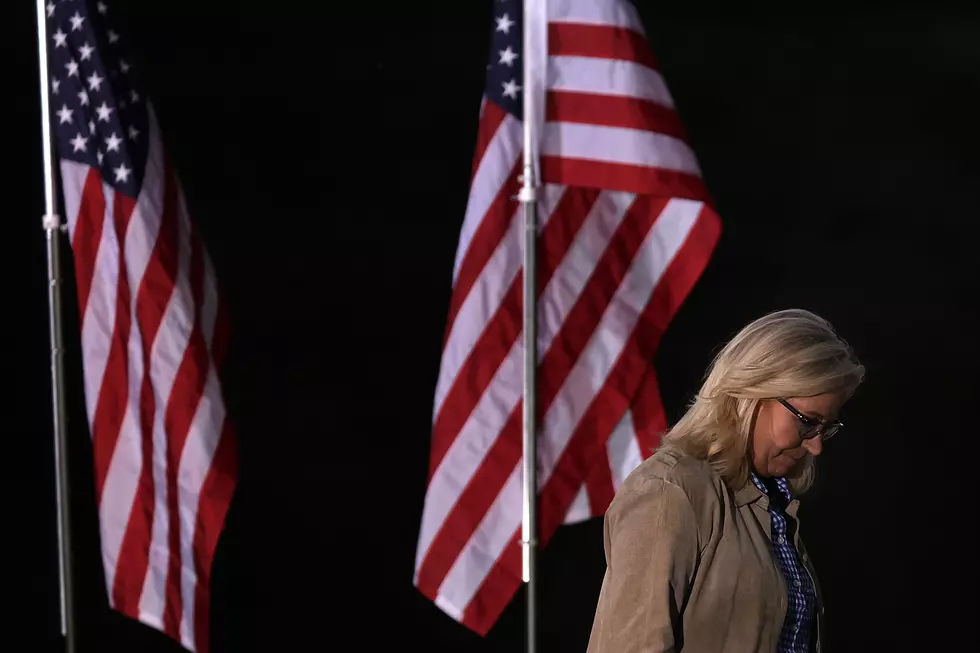
President Calls on GOP to Oppose House Condemnation of Tweets
WASHINGTON (AP) — President Donald Trump called on fellow Republicans Tuesday to stick with him, "not show weakness" and oppose a House resolution condemning his tweets urging four Democratic congresswomen of color to return to their countries. His comments, he insisted, "were NOT Racist."
Trump renewed his rain of insults against the four lawmakers — American citizens all — as his GOP allies in Congress mostly leapt to his defense. Following his cue, they tried refocusing the battle by accusing the four progressive freshmen and their party of pushing the country toward socialism.
"I will vote against this resolution," House Minority Leader Kevin McCarthy of California told reporters, calling the measure "all politics." No. 3 House GOP leader Liz Cheney of Wyoming said the four Democrats "are wrong when they attempt to impose the fraud of socialism on the American people."
The House resolution would condemn "President Donald Trump's racist comments that have legitimized and increased fear and hatred of new Americans and people of color."
The four-page measure traces the country's history of welcoming immigrants from colonial times and includes an entire page of quotes from Republican President Ronald Reagan.
Reagan said in 1989, during his final days in office, that if the U.S. shut its door to new arrivals, "our leadership in the world would soon be lost."
Democrats were hoping the resolution would put Republican lawmakers on the spot and would win some GOP votes. Top Republicans were urging their GOP colleagues to stand against the language, and it was unclear if any would defect.
"The so-called vote to be taken is a Democrat con game. Republicans should not show 'weakness' and fall into their trap," Trump tweeted.
"I don't have a Racist bone in my body!" he wrote.
He also reprised a taunt he initially made on Monday, tweeting, "If you hate our Country, or if you are not happy here, you can leave!" The lawmakers strongly oppose Trump's policies and have voiced support for his impeachment.
His barrage came amid a continued backlash to his weekend tweets that the progressive women "go back" to their "broken and crime-infested" countries. The tweets, widely denounced as racist, were directed at Reps. Ilhan Omar of Minnesota, Alexandria Ocasio-Cortez of New York, Ayanna Pressley of Massachusetts and Rashida Tlaib of Michigan.
Ocasio-Cortez returned the fire Tuesday, tweeting, "You're right, Mr. President - you don't have a racist bone in your body. You have a racist mind in your head and a racist heart in your chest."
McCarthy said Monday that Trump was not a racist. But he said he disagreed that the four lawmakers should leave the U.S., telling reporters, "They're Americans. Nobody believes somebody should leave the country. They have a right to give their opinion."
The episode served notice that Trump is willing to again rely on incendiary rhetoric on issues of race and immigration to preserve his political base in the leadup to the 2020 election.
At the Capitol, there was near-unanimous condemnation from Democrats and a rumble of discontent from a subset of Republicans, but notably not from the party's congressional leaders.
In response, Trump tweeted anew Tuesday about the four congresswomen: "Why isn't the House voting to rebuke the filthy and hate laced things they have said? Because they are the Radical Left, and the Democrats are afraid to take them on. Sad!"
His words, which evoked the trope of telling black people to go back to Africa, may have helped narrow the divides among House Democratic, who have been riven by internal debate over how best to oppose his policies.
At a closed-door meeting Tuesday of House Democrats, Speaker Nancy Pelosi, D-Calif., said, "We are offended by what he said about our sisters," according to a congressional aide who attended the meeting and described the remarks on condition of anonymity.
Trump allies said he was also having some success in making the progressive lawmakers the face of their party.
The Republican president questioned whether Democrats should "want to wrap" themselves around this group of four people as he recited a list of the quartet's most controversial statements.
"Nancy Pelosi tried to push them away, but now they are forever wedded to the Democrat Party," he wrote Tuesday, adding: "See you in 2020!"
Trump, who won the presidency in 2016 in part by energizing disaffected voters with inflammatory racial rhetoric, made clear he has no intention of backing away from that strategy in 2020.
"The Dems were trying to distance themselves from the four 'progressives,' but now they are forced to embrace them," he tweeted Monday afternoon. "That means they are endorsing Socialism, hate of Israel and the USA! Not good for the Democrats!"
Trump has faced few consequences for such attacks in the past. They typically earn him cycles of wall-to-wall media attention and little blowback from his party. He is wagering that his most steadfast supporters will be energized by the controversy as much, or if not more so, than the opposition.
The president has told aides that he was giving voice to what many of his supporters believe — that they are tired of people, including immigrants, disrespecting their country, according to three Republicans close to the White House who were not authorized to speak publicly about private conversations.
In an Associated Press-NORC Center for Public Affairs Research poll from February 2017, half of Americans said the mixing of culture and values from around the world is an important part of America's identity as a nation. About a third said the same of a culture established by early European immigrants.
But partisans in that poll were divided over these aspects of America's identity. About two-thirds of Democrats but only about a third of Republicans thought the mixing of world cultures was important to the country's identity. By comparison, nearly half of Republicans but just about a quarter of Democrats saw the culture of early European immigrants as important to the nation.
More From K2 Radio









